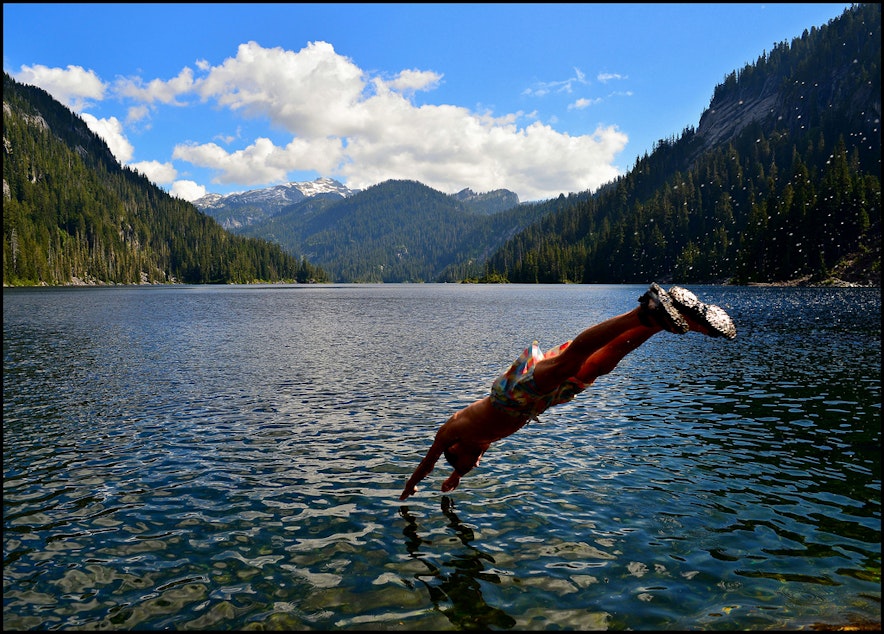That Cool Lake Or River Can Be Deadly For Swimmers

Temperatures soar, swimmers dive in – and drown.
Don’t be one of them: That’s the message from safety and health officials after a particularly deadly start to the summer season in Washington state. They say at least 14 people drowned in lakes, rivers and saltwater in the first two weeks of June alone.
Sgt. Charlie Akers, with King County's marine rescue unit, says swimmers often are unprepared for the water temperatures they encounter, even on hot summer days.
“So they swim in the shallow areas, it feels nice and warm,” he said. “They swim out a little bit deeper, and it gets colder. And so if people are diving off of a diving board, in that first couple of feet they're probably fine. But once they hit three or four feet, they can actually get cold water shock.”
That can cause a swimmer to gasp and gulp down lungfuls of water.
Last year in King County, there were 15 total drownings in all locations, including open water, swimming pools, hot tubs and bathtubs, according to data from Public Health-Seattle & King County.
More than two-thirds of the 92 drowning victims in 2010-2014 in King County were male, including 13 of the victims last year, according to the data. Most victims were white.
Few of those King County victims were children. But Tony Gomez with the county health agency says research has shown that among kids, the drowning death rate for Asian/Pacific Islanders is significantly higher.
As a result Children's Hospital has reached out to the Vietnamese and other Asian communities, Gomez said. But education of all youth is vital, he says.
“Some of the high schools are trying to get swim lessons in the entire schools. We'd like to see more of that,” he said.
Gomez recommends going to a pool with life guards. But if you can’t, stay close to shore or the dock – in fact, under Seattle city ordinance, you must stay within 50 feet.
Other tips from the King County website:
- Know the water: What’s the temperature, what are the water conditions? Don’t dive into unfamiliar water.
- Know your limits: Learn to float, tread water and swim. Watch children closely when they’re in or near water. Avoid swimming during or after drinking alcohol.
- Wear a life jacket.

